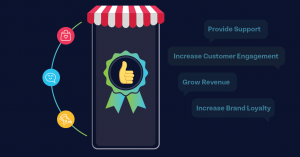
Internet security concerns
2016 was a year that brought cyber security into the spotlight of many major stories. From affecting the US Presidential Election to toppling the biggest corporations in the world, hacking was no longer a distant concern. The average person was exposed to the perils of poor security and how ill-prepared even the Joint Chiefs were. People have a right to be concerned about hacking and what cyber security should mean in their daily lives. Let’s consider what happened and what can be done.
How the US election got hacked
Though society has advanced rapidly in terms of tech, it’s not without cost. As cars were invented, people had them stolen and experienced horrible accidents. When mobile phones were able to use the software, it meant they could also get viruses. And now, with the widespread adoption and use of the internet, hackers are finding their way into more areas than ever before.
Starting last year, there was a steady rise in the visibility of large-scale hacking. In what Fortune called “the hack of the century”, “a cyber-invasion brought Sony Pictures to its knees and terrified corporate America”. Many experts knew this was only the beginning but few could’ve predicted it would extend as far as American elections.
This year, intelligence agencies confirmed the shocking news that Russian hackers had attempted to influence the election, to help Donald Trump win. President Barack Obama has of course taken an interest, and according to CNN, “ordered US intelligence agencies to complete a full review of hacking in US elections going back to 2008 before he leaves office and Trump is sworn in to take his place”.
As we’ve previously highlighted, Trump, when he takes over, must make serious steps in increasing cyber security in the country.
Hackers even brought down several large corporations. We all remember the massive DDoS attack in October where Netflix, Facebook, Twitter plus the Guardian, CNN, the New York Times, the Wall Street Journal, and several others all faced an attack on their collective infrastructure provider, which prevented people accessing all their sites. Separately, Yahoo users found their private details stolen by hackers, too. This truly was the year of the hack and it’s time everyone took cyber security seriously.
What to do about cyber security
While you may not run a major corporation or an election, there are still a number of steps you can take to protect yourself.
Use two-factor authentication: When adding verification, you can usually add another device to help verify your details. This usually involves your phone. Considering that people can log in with just an email and password, adding a phone message usually thwarts these attempts.
Use smart passwords. Lifehacker has a very important guide on how to create a proper password and how to remember it. Not using names or places, for example, is highly advisable.
Use encryption. Make sure that the software you use has built-in encryption to keep data safe. In fact, you shouldn’t even have to do anything within the software, the encryption should be built-in.
Don’t click on strange links. When you get emails, make sure you don’t follow the links – no matter how legitimate the email might seem. Only follow links from trusted sources, since this is a prime way to get details that can be used on bank accounts.
These are just some ways and reasons people must begin protecting themselves. We’ve already discussed what you need to know from a broader perspective, but now is the time to actually take action.
Explore other articles
Step into the future of business messaging.
SMS and two-way channels, automation, call center integration, payments - do it all with Clickatell's Chat Commerce platform.








